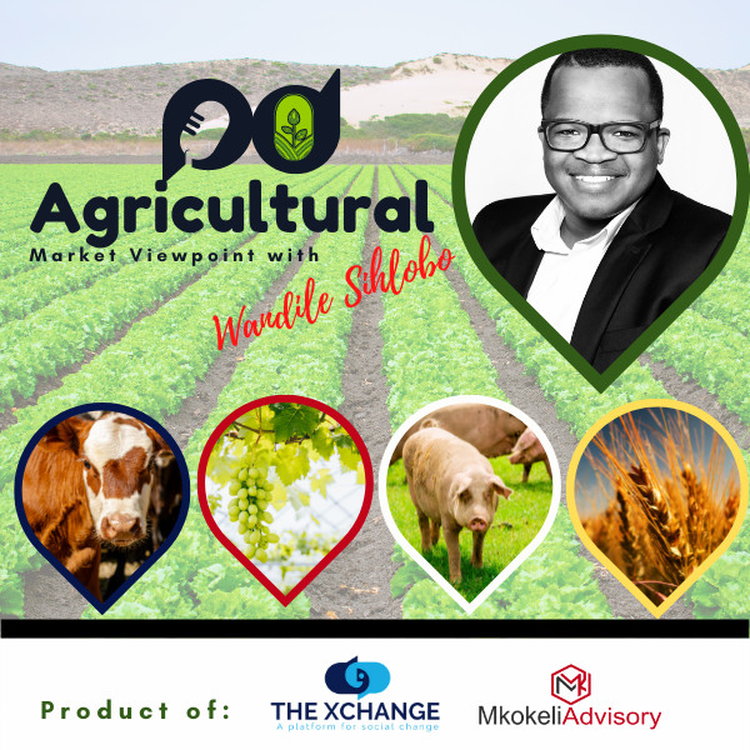
Energy crisis now a food security risk
Loading player...
There is probably no issue more urgent than the worsening energy crisis for South Africa's agriculture and agribusinesses. Farmers who rely on irrigation have all expressed concerns that persistent loadshedding negatively affects production.
In crucial field crops, roughly 20% of maize, 15% of soybean, 34% of sugarcane and nearly half of the wheat production are produced under irrigation. Fruits and vegetables also heavily rely on irrigation and thus face similar challenges. In red meat, poultry, piggery, wool, and dairy production, there are also concerns that loadshedding beyond stage two makes operations and planning challenging, as these industries all require continuous power for their usual activities.
Similarly, agribusinesses face similar challenges in various downstream processing activities, such as milling, bakeries, abattoirs, wine processing, packaging, and animal vaccine production. Exporting agribusinesses, especially those with products susceptible to delays, such as fruits, red meat, and wine, are also worried about the port activities, which fortunately haven't been primarily affected.
The financial impact on farmers and agribusinesses or food security is not yet clear and will be difficult to quantify. There are also food security concerns as the effect of loadshedding will probably show in the volumes of products to be harvested/produced later in the coming months due to the time lag in agricultural production stages. The other emerging concern is the impact on jobs if businesses are severely affected. There is a real danger that some farmers could lose their crops, which would impact the farms' financial future and likely negatively impact agricultural financiers.
Total exemption of the sector from loadshedding will be near impossible. Many food processing companies and farms are technically linked to other localities and cannot be easily insulated from loadshedding. With Eskom's challenges likely to be with us for some time, reducing reliance on Eskom will probably be a strategic business survival consideration for many businesses, although costly. Investing in alternative power sources will need to be prioritized where financial resources permit. This alternative generation may not necessarily take a business "off the grid" but ensure the continuity of crucial business activities during the cycle of loadshedding.
The financial commitments associated with this may be quite large, and businesses may also encounter regulatory hurdles. These financial or regulatory limitations should be shared with the Department of Agriculture, Land Reform and Rural Development (DALRRD) so that they can help address them within their available resources and means.
One possible step DALLRD can consider is to streamline the application processes under the Subdivision of Agricultural Land Act (SALA) and Spatial Planning and Land Use Management Act (SPLUMA) to authorize land use for energy generation. Additionally, if the government could also consider subsidies for solar panels and battery storage on top of relaxing these requirements, many farmers could possibly go off grid and generate enough power for their systems.
These are some of the issues I cover in this week’s podcast.
My writings on agricultural economic matters are available on my blog: https://wandilesihlobo.com/
Podcast production by: Lwandiso Gwarubana, Richard Humphries, and Sam Mkokeli
In crucial field crops, roughly 20% of maize, 15% of soybean, 34% of sugarcane and nearly half of the wheat production are produced under irrigation. Fruits and vegetables also heavily rely on irrigation and thus face similar challenges. In red meat, poultry, piggery, wool, and dairy production, there are also concerns that loadshedding beyond stage two makes operations and planning challenging, as these industries all require continuous power for their usual activities.
Similarly, agribusinesses face similar challenges in various downstream processing activities, such as milling, bakeries, abattoirs, wine processing, packaging, and animal vaccine production. Exporting agribusinesses, especially those with products susceptible to delays, such as fruits, red meat, and wine, are also worried about the port activities, which fortunately haven't been primarily affected.
The financial impact on farmers and agribusinesses or food security is not yet clear and will be difficult to quantify. There are also food security concerns as the effect of loadshedding will probably show in the volumes of products to be harvested/produced later in the coming months due to the time lag in agricultural production stages. The other emerging concern is the impact on jobs if businesses are severely affected. There is a real danger that some farmers could lose their crops, which would impact the farms' financial future and likely negatively impact agricultural financiers.
Total exemption of the sector from loadshedding will be near impossible. Many food processing companies and farms are technically linked to other localities and cannot be easily insulated from loadshedding. With Eskom's challenges likely to be with us for some time, reducing reliance on Eskom will probably be a strategic business survival consideration for many businesses, although costly. Investing in alternative power sources will need to be prioritized where financial resources permit. This alternative generation may not necessarily take a business "off the grid" but ensure the continuity of crucial business activities during the cycle of loadshedding.
The financial commitments associated with this may be quite large, and businesses may also encounter regulatory hurdles. These financial or regulatory limitations should be shared with the Department of Agriculture, Land Reform and Rural Development (DALRRD) so that they can help address them within their available resources and means.
One possible step DALLRD can consider is to streamline the application processes under the Subdivision of Agricultural Land Act (SALA) and Spatial Planning and Land Use Management Act (SPLUMA) to authorize land use for energy generation. Additionally, if the government could also consider subsidies for solar panels and battery storage on top of relaxing these requirements, many farmers could possibly go off grid and generate enough power for their systems.
These are some of the issues I cover in this week’s podcast.
My writings on agricultural economic matters are available on my blog: https://wandilesihlobo.com/
Podcast production by: Lwandiso Gwarubana, Richard Humphries, and Sam Mkokeli

